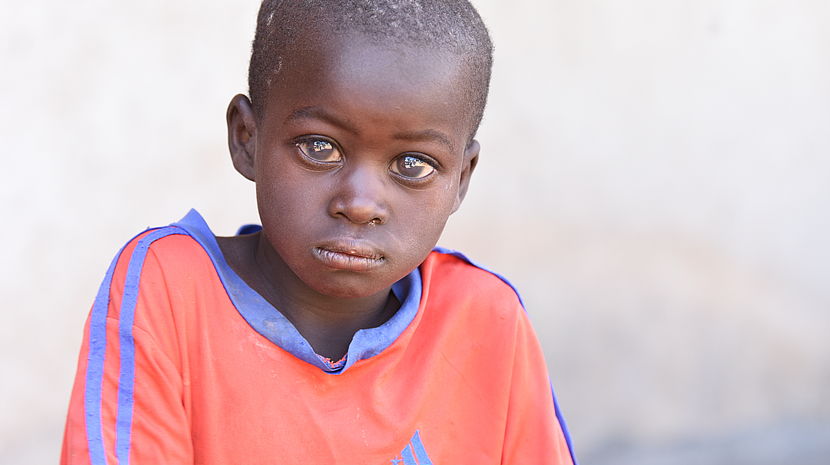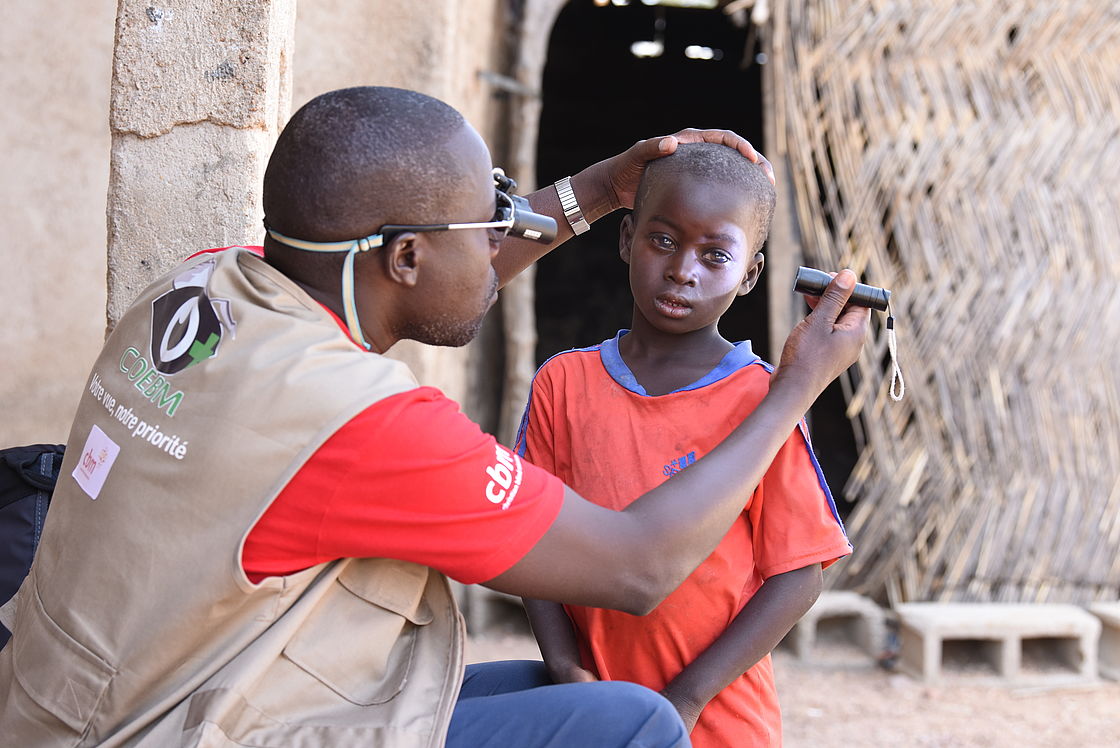World Glaucoma Day:
Prevention is the be-all and end-all

©CBM
Glaucoma cannot be cured; it can only be stopped - with medication and sometimes with surgery. Without timely treatment, those affected become irreversibly blind. CBM supports with examinations, medicines and operations.
Glaucoma is one of the most common causes of visual impairment. If the disease is not treated in time, it leads to blindness. Especially in countries where preventive care is often lacking. That is why CBM, for example, sends mobile clinic teams to remote regions to bring help to the people.
Manou's light-sensitive eyes water and hurt. Time and again, the 5-year-old boy from northern Cameroon rubs his eyelids. Manou has glaucoma, an eye disease that can lead to blindness. The boy can only see dimly. Worldwide, 3.6 million people are blind due to glaucoma. CBM is drawing attention to their fate on World Glaucoma Day on 12 March.
The way too far, the treatment too expensive
Glaucoma damages the optic nerve and thus also the retina. With serious consequences: The patient's field of vision becomes increasingly limited. The disease cannot be cured, it can only be stopped - with medication and sometimes with surgery. Without timely treatment, those affected become irreversibly blind. This is especially the case in the poorest regions of the world.
"Due to the lack of preventive care, glaucoma is often detected far too late in these countries," says CBM CEO Dr. Rainer Brockhaus.
"In addition, people often travel for hours to reach the nearest clinic. Many cannot afford the travel costs, let alone treatment," says Brockhaus. "Prevention, however, is the name of the game when it comes to glaucoma," he stresses. "Our project partners regularly deploy mobile clinic teams to ensure that help reaches those who live in remote areas," says Brockhaus.
Stopping the loss of sight

Manou together with Esaaya Tikam, a surgeon and outreach coordinator from Mokong hospital in Cameroon.
CBM
This is how Manou's disease was discovered. During a field visit, the clinic staff discovered that Manou's glaucoma is already advanced. His eyes are unusually large and cloudy. Manou's father noticed this shortly after the boy was born. That is why he had already travelled with him to the faraway hospital when he was still a baby.
"Even then, the doctors had diagnosed Manou with glaucoma and prescribed eye drops for him," says the father.
"The problem is that I didn't have money for regular check-ups at the hospital. And I couldn't afford to keep buying the necessary eye drops," the man says sadly.
One thing is certain: Manou needs to be admitted to the hospital to see what treatment can best help him now. The hospital supported by CBM will cover the costs of transport and therapy. Manou will not regain the sight he has already lost. However, there is hope that with the right treatment and consistent follow-up care, he will be able to preserve the vision he has left. Maybe then he will also have the chance to go to school.